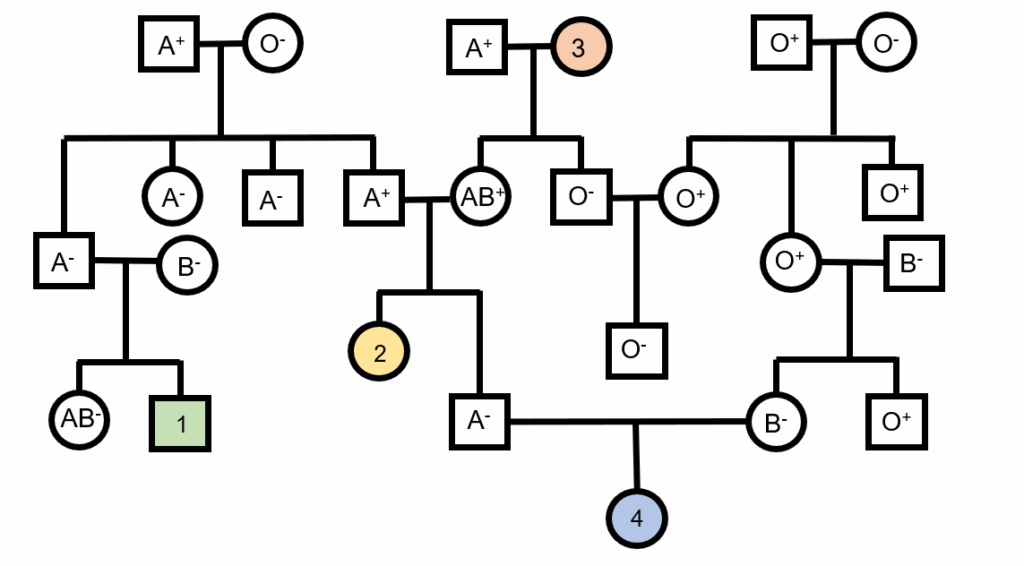A pedigree chart is a diagram that shows the genetic relationships within a family. It is commonly used in biology to study the inheritance of traits, including blood groups. In a pedigree chart for blood groups, individuals are represented by symbols connected by lines that indicate their familial relationships.
In a typical pedigree chart for blood group inheritance, different blood types are represented by different symbols. For example, individuals with blood type A may be represented by a square, individuals with blood type B by a circle, individuals with blood type AB by a diamond, and individuals with blood type O by a triangle.
Biology Pedigree Chart For Blood Group
How to Read a Blood Group Pedigree Chart
When analyzing a pedigree chart for blood groups, it is important to understand the patterns of inheritance. The ABO blood group system is inherited in a simple Mendelian pattern, with allele A and allele B being dominant over allele O. This means that individuals with blood types A or B must have at least one parent with the corresponding allele.
In a pedigree chart, individuals with blood type O can only have parents with blood type O, as they have two copies of the recessive allele. Individuals with blood type AB must have parents with at least one copy of the A allele and one copy of the B allele. By studying the relationships between individuals in a pedigree chart, geneticists can determine the likelihood of certain blood types appearing in future generations.
Conclusion
Understanding how to read a pedigree chart for blood group inheritance is essential for studying genetic traits in families. By analyzing the patterns of inheritance in a pedigree chart, researchers can gain insights into the genetic factors that influence blood type. This information can be valuable for medical professionals in diagnosing and treating blood-related disorders.
